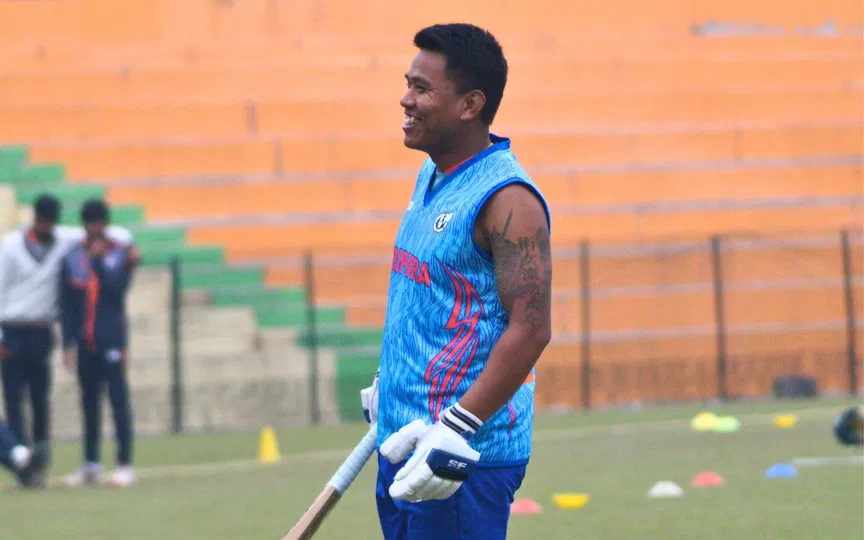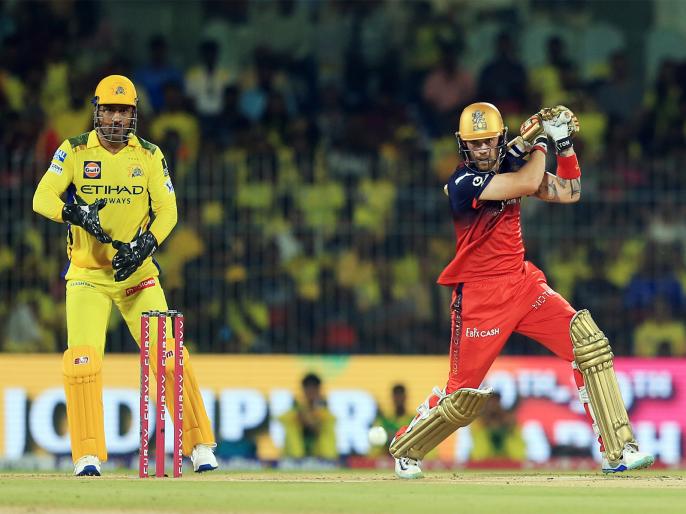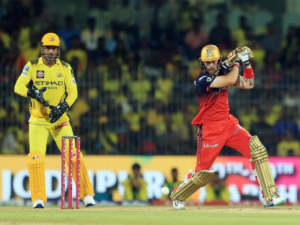Heat levels in Nearly half of IPL 2025 Matches in India Reached Dangerous Highs: Report – carboncopy.info
Carbon Copy
Making Climate Sense
During the heatwave, players are prone to cramps, severe fluid and weight loss, fatigue, and heatstroke. Photo:BCCI
Report shows that over a third of matches played under “extreme caution” conditions
A new study titled ‘Hit for Six: The Danger Zone’ revealed that elite cricketers played half this year’s Indian Premier League (IPL) matches, held across India, took place under conditions classified as meriting either “Extreme Caution” or “Danger” on the Heat Index— a measure that combines air temperature and humidity to assess heat-related risk.
The report revealed that more than 36% of 2025 IPL games took place under ‘Extreme Caution’ conditions where heat exhaustion becomes a serious threat, with a further 12% reaching a “Danger” classification where the risk of heatstroke becomes significant.
The report was published by the British Association for Sustainability in Sport (BASIS), Climate Central, Frontrunners and The Next Test. A total of 65 IPL matches played were assessed for the study.
Mike Tipton, Professor of human and applied physiology at the Extreme Environments Laboratory, School of Sport, Health, and Exercise Science at the University of Portsmouth said, “We’re witnessing a clear trend towards more frequent and more intense heat conditions for key cricketing nations. Players are now being asked to perform in environments that are not just uncomfortable, but potentially dangerous, with rising temperatures and humidity levels pushing human physiology towards its upper limits. This isn’t just about performance — it’s increasingly a question of player safety.”
The report charted a sharp rise in hazardous heat days at almost every major cricket stadium in India since 1970. In Mumbai, the number of these high-risk heat days has jumped by 125%, while Thiruvananthapuram recorded more than 100 hazardous heat days in 2024 alone. These are days when temperatures exceed safe limits for human health, dramatically increasing the risk of heat-related illness.
This pattern is not just limited to India. Many cricket playing nations like Pakistan, Australia, and South Africa also saw a significant surge in extreme heat days.
The report also showed that the extreme heat also intensified the effects of air pollution. It was found that not a single match recorded air quality within the ‘Good’ category of the Air Quality Index. While conditions did not reach the “Severe” or “Hazardous” levels, nearly half of the matches, 34 in total (47%), were classified as “Poor.”
Kristina Dahl, VP of Science at Climate Central said, “Across India, climate change is increasing the number of days when extreme heat threatens the health of both cricket fans and cricket players. This trend toward more frequent, more extreme heat will continue as long as we keep burning fossil fuels, so preserving the future of cricket will require both cutting carbon pollution and considering ways to adapt cricket seasons to keep players and fans safe.”
A team of handpicked and dedicated writers committed to fact check each climate-related statement. Go to the roots and intent of each policy implemented, internationally and at home to help you understand climate better
See author's posts
We are using cookies to give you the best experience on our website.
You can find out more about which cookies we are using or switch them off in .
This website uses cookies so that we can provide you with the best user experience possible. Cookie information is stored in your browser and performs functions such as recognising you when you return to our website and helping our team to understand which sections of the website you find most interesting and useful.
Strictly Necessary Cookie should be enabled at all times so that we can save your preferences for cookie settings.
If you disable this cookie, we will not be able to save your preferences. This means that every time you visit this website you will need to enable or disable cookies again.
This website uses Google Analytics to collect anonymous information such as the number of visitors to the site, and the most popular pages.
Keeping this cookie enabled helps us to improve our website.
Please enable Strictly Necessary Cookies first so that we can save your preferences!
Share this content:














Post Comment